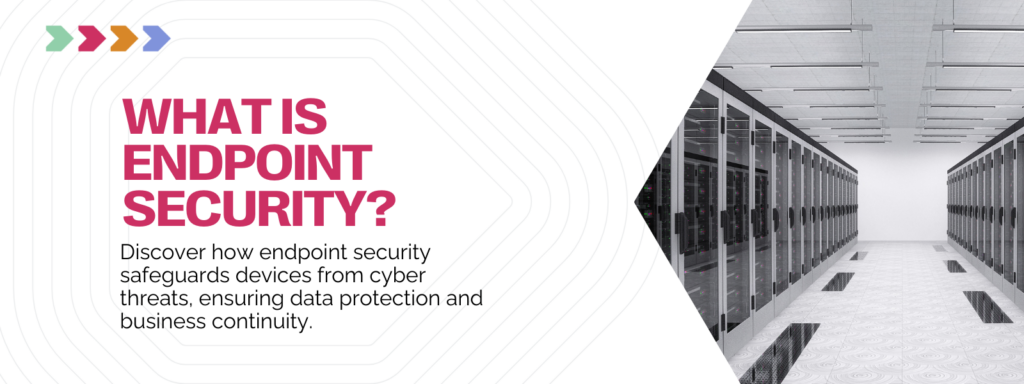What is Endpoint Security?
Endpoint security refers to the comprehensive approach taken to protect and defend endpoint devices such as laptops, desktops, mobile devices, and servers from cyber threats. As organizations increasingly rely on a variety of devices to access their networks and cloud-based platforms, the need for robust endpoint security has become paramount. This security strategy encompasses detecting, preventing, and remedying attacks targeting these endpoints, ensuring that sensitive data and systems remain secure.
Importance of Endpoint Security
Endpoints are often the primary targets for cybercriminals. A study by Ponemon Insitute indicated that 68% of organizations have experienced one or more endpoint attacks that compromised their data or IT infrastructure. According to IBM, the global average cost of a data breach is $4.88M making effective endpoint security crucial for businesses. Implementing End Point Security helps reduce the risk of cyber-attacks and protect data and IT infrastructure.
- Preventing Data Loss: Endpoint security measures help safeguard critical business data from threats such as malware and ransomware, which can lead to data breaches or loss.
- Strengthening Cyber Defense: By providing real-time insights and threat detection capabilities, endpoint security allows organizations to respond swiftly to potential attacks, minimizing the risk of successful breaches.
- Ensuring Business Continuity: A well-implemented endpoint security strategy helps maintain uninterrupted business operations by protecting devices from disruptive cyber threats.
- Compliance with Regulation: Businesses handling sensitive information are subject to regulatory requirements for data security, such as GDPR, HIPAA, or PCI DSS. Implementing endpoint security helps businesses comply with these standards by ensuring that all devices accessing sensitive data meet security requirements.
Protecting endpoints can be challenging because it requires a proactive stance in cybersecurity and educating end-users on the latest cybersecurity and how to report and respond to breaches. Implementing endpoint security solutions helps prevent users from downloading or accessing data that may compromise the organization.
Advantages of Implementing Endpoint Security
A successful endpoint security strategy typically includes several essential components, including identifying and managing all the endpoints, assessing risks and vulnerabilities, user access, user awareness, continuous monitoring, and incident response:
- Discovery: Identifying all devices connected to the network is the first step in managing endpoint security effectively.
- Management: Centralized management systems allow administrators to oversee and configure security settings across all endpoints.
- Monitoring: Continuous monitoring of endpoint activities helps detect suspicious behavior or potential threats in real-time.
- Remediation: When a threat is identified, rapid response mechanisms are essential to mitigate damage and restore security.
- Automation: Automated processes can enhance efficiency in threat detection and response, reducing the workload on security teams.
Types of Endpoint Security Solutions
There are various types of endpoint security solutions available, each designed to address specific security needs, endpoints, and requirements:
- Endpoint Protection Platforms (EPP): These solutions focus on preventing threats through a combination of antivirus, anti-malware, and other protective measures.
- Endpoint Detection and Response (EDR): EDR solutions provide advanced threat detection and response capabilities, allowing for deeper investigation of security incidents.
- Mobile Device Management (MDM): Mobile Device Management (MDM) solutions allow organizations to remotely manage, monitor, and secure employees’ mobile devices. MDM tools enable IT teams to enforce security policies, such as password requirements, encryption, and remote wipe capabilities.
- Data Loss Prevention (DLP): DLP solutions focus on preventing the unauthorized transfer of sensitive information outside the organization. They monitor data transfer and automatically block or encrypt sensitive information on the organization’s network.
- Cloud-Based Solutions: With the shift to remote work, cloud-native endpoint security solutions have gained popularity, enabling the protection and management of endpoints regardless of their location.
These are just a few of the end-point solutions that organizations can implement to their IT infrastructure and devices.
Challenges in Endpoint Security
Despite its importance, endpoint security faces several challenges:
- Increased Attack Surface: The proliferation of devices, especially with remote work, has expanded the potential entry points for cyberattacks.
- Sophisticated Threats: Cybercriminals continually evolve their tactics, making it essential for endpoint security solutions to adapt and respond to new threats.
- User Behavior: Employees may inadvertently compromise security through unsafe practices, such as using unsecured networks or failing to update software.
Endpoint security is vital to an organization’s overall cybersecurity strategy. By implementing effective endpoint protection measures, organizations can significantly reduce their risk of cyberattacks, protect sensitive data, and ensure operational continuity. As the threat landscape continues to evolve, staying informed about the latest endpoint security solutions and best practices is essential for safeguarding digital assets.
Implementing Cloud-Native End Point Security
Cloud-native platforms for endpoint security are designed to protect endpoints like mobile devices, laptops, desktops, and services from cyber threats like malware, ransomware, and advanced persistent threats (APTs). Cloud-native platforms provide advantages to organizations like scalability and flexibility that allow organizations to deploy endpoint security solutions to on-premise and off-premise devices quickly compared to traditional security solutions that require complex and time-consuming installations and configuration.
Cloud-native endpoint security solutions are advantageous to organizations with a global workforce and implementing hybrid or remote work. They provide a complete suite of endpoint security benefits including identity protection and threat detection and response.
How White Cloak Can Help
Our expert team will help you assess your business needs and provide a tailored solutions to help your organization overcome challenges. Our experience in implementing cloud solutions help us provide a seamless integration process with minimal disruption to your business day-to-day. Contact us to learn more today.

